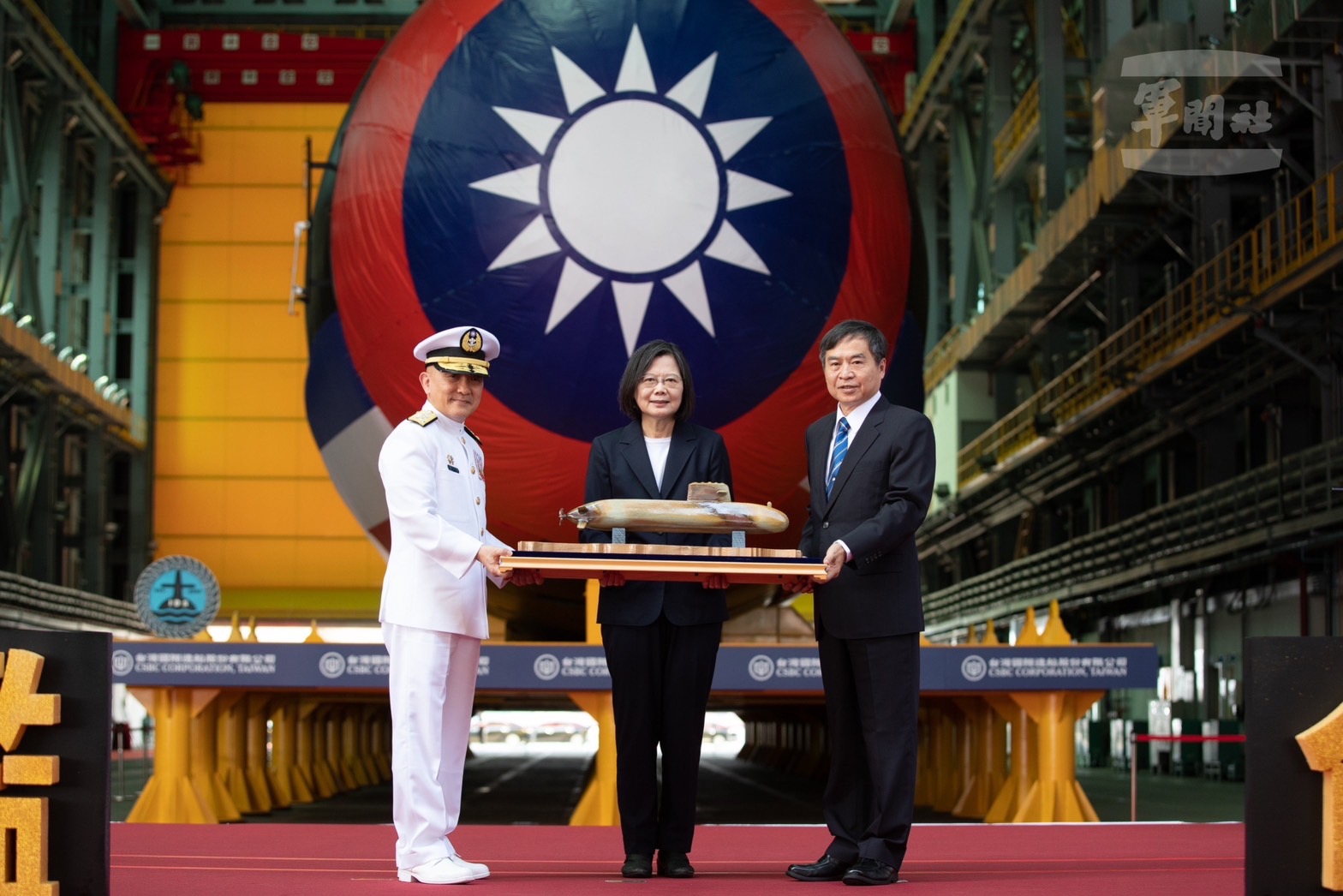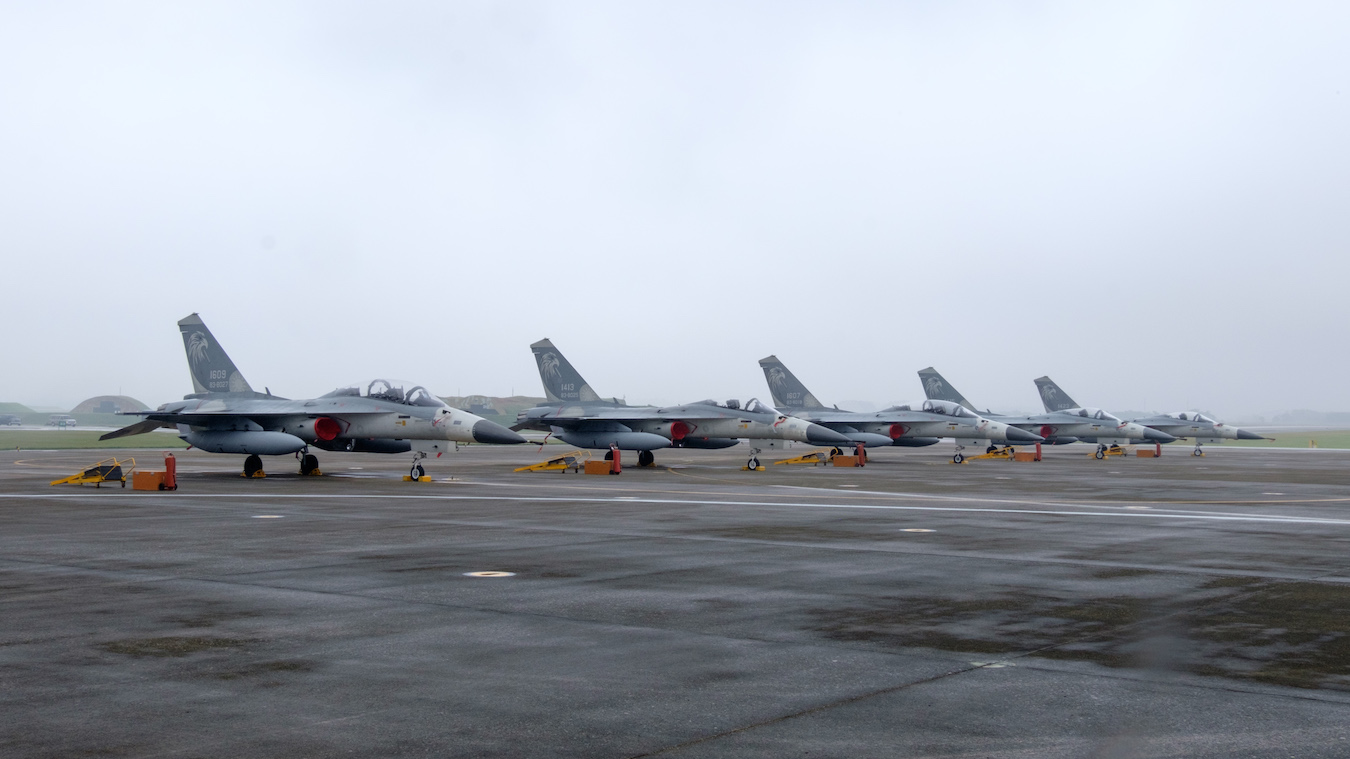by Brian Hioe
語言:
English
Photo Credit: O8447/WikiCommons/CC BY 3.0
ACCORDING TO TAIWANESE president Tsai Ing-wen, the next-generation Taiwanese indigenous fighter plane is under development. This, in Tsai’s words, is to continue her administration’s defense policy.
Tsai notably also referred to the rollout of domestically developed jet fighter trainers in her New Year’s address as one of the accomplishments of her administration, bringing this up alongside the launch of Taiwan’s first domestically developed submarine, the Narwhal. Tsai stated during her New Year’s address that Taiwan should aim to build up domestic capacity while seeking to acquire technologies and capacities it lacks the ability to develop itself through sales.
The launch of the Narwhal comes after many years of discussion of Taiwan’s domestic submarine program, particularly with the view that submarines could affect China’s strategic calculus in invasion scenarios. There has been less focus on fighter jets comparatively.
 Photo credit: 國防部發言人/Facebook
Photo credit: 國防部發言人/Facebook
Tsai may aim to change that with more focus on domestically developed military hardware. This is in the wake of the successes of the Tsai administration’s publicity blitz around the launch of the Narwhal. Even if the Tsai administration was accused of arbitrarily making an event out of the Narwhal’s development for campaigning purposes, this proved successful in getting the public interested in and enthusiastic about the Narwhal’s development as a matter of national pride.
It is probably the Tsai administration’s hope that this enthusiasm can translate over to other weapons systems as well. Still, Tsai’s announcement takes place in a similar timeframe to the announcement that Taiwan will receive 66 F-16Vs from the US in the next two years.
The KMT has increasingly attacked weapons purchases by Taiwan from the US, suggesting that the US is foisting unwanted, even dangerous, arms onto Taiwan for the sake of profit. One has seen similar attacks by the KMT against domestic weapons development. As KMT legislator Ma Wen-chun came under fire for leaking secrets about the submarine to China and South Korea, as well as seeking to block its budget on many occasions, Ma alleged that the submarine was a death trap for members of the ROC navy.
The KMT casting doubt on the ROC military occurs even as the KMT traditionally positioned itself as the party that represents the interests of veterans in Taiwan. By contrast, although the DPP historically framed the military as the backer of the KMT’s authoritarian rule during the White Terror, the Tsai administration has sought to rehabilitate the military’s image at a time of rising tensions with China. The KMT attacking domestic weapons development, never mind that this is an object of national pride for many–particularly members of the military–may give the DPP an opportunity to alienate the KMT from its traditional links with the military and win the support of the military, seeing as DPP presidential administrations have concerns about the loyalty of the military in light of how the military has long been a bastion for ROC nationalism.
As for the development of domestic fighter jets themselves, even if Taiwan might not rely on them in wartime, the Tsai administration may aim to ensure that Taiwan’s defense industry can keep pace with the times and to strengthen domestic capacity.
 Photo credit:
Photo credit:
Jets, however, go counter to recommendations from the US that Taiwan strengthen asymmetric capacity, seeing as they would still be considered “big ticket” items that are showy but may not be useful in fending off a much larger enemy. Part of Taiwan’s hesitancy on asymmetric defense is because this strategy would make it more reliant on the US, hence part of why there is still an emphasis on big-ticket items–it is also politically improbable that branches of the military can be convinced to scale back the hardware that they are built around.
At the same time, it is possible that the DPP intends to use domestic fighter jets as part of its election strategy. In particular, given the KMT’s attacks on Taiwan’s domestic submarine program, the DPP has suggested that Taiwan’s domestic submarine program will cease if the KMT takes power. The suggestion with domestically developed jets, too, may be that such programs will stop if the KMT takes power.
This is to be seen, but if so, this angle of attack from the DPP occurs relatively late in the election cycle, seeing as voting will take place on Saturday. At the same time, given the narrow timeframe, the present is when candidates and parties will lean into their sharpest angles of attack and any political ammunition they are holding in reserve. This could potentially be the case with the DPP regarding attacks on the KMT regarding domestic weapons development.

